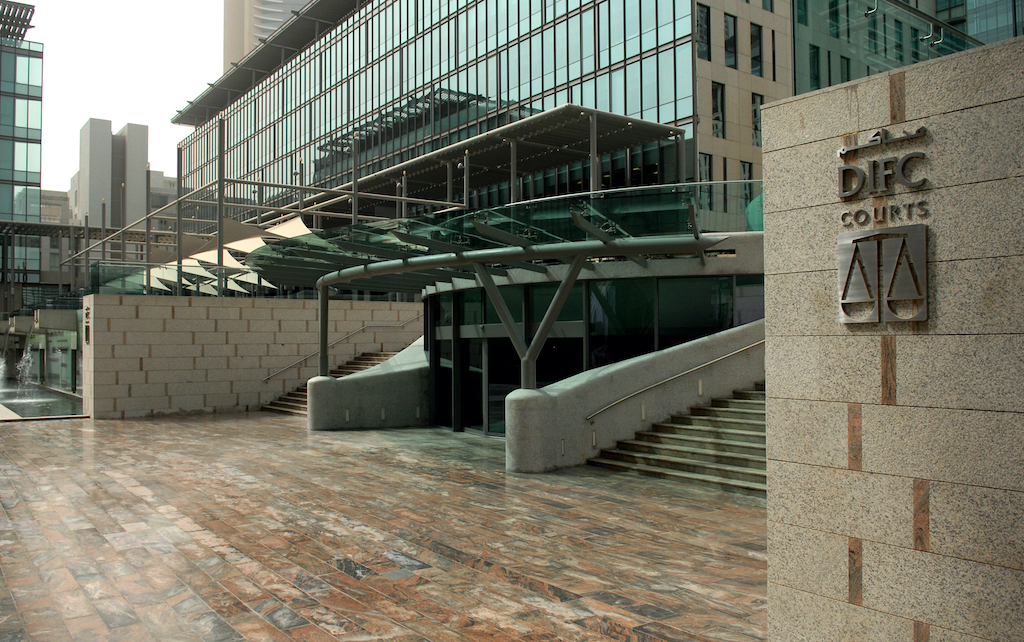The Dubai International Financial Centre (DIFC) Courts today released its figures for the first six months of 2020, confirming a substantial increase in claims filed with Dubai’s English-language common law jurisdiction.
The volume of cases in the main Court of First Instance (CFI) grew significantly, increasing by 96% year-on-year. The total value of cases in the same period, including arbitration-related cases, amounted to AED 2.2 billion, with an average case value of AED 88.5 million.
Cases brought before the CFI covered a range of sectors including banking and finance, construction, real estate and manufacturing and involving disputes related to breach of contract, outstanding payments, insolvency, Wills &Probate, and employment. There was also a noticeable increase in the number of ‘opt-in’ cases for the first six months of 2020, with over 70% of claims in the CFI and arbitration-related cases originating from parties ‘electing’ to use the DIFC Courts to resolve their disputes.
Reinforcing the Courts’ record of certainty for business through enforceable judgments, the total value of enforcement claims filed amounted to AED 192.4 million for the first half of 2020, with an increase of 15% on the number of claims, as compared with the first six months of 2019.
The operational capacity of the region’s first Small Claims Tribunal (SCT) was strong in the first six months of 2020, with 213 claims filed and overall claim value totaling AED 24 million. Greater awareness and the innovative use of technology, including the region’s first “Smart SCT” virtual court, has led to over 50% of claims registered as ‘opt-in’.
HE Omar Al Muhairi, Deputy Chief Justice, DIFC Courts, said: “Choice is an extremely important factor for individuals and businesses when choosing a jurisdiction for the resolution of their dispute. For over a decade the DIFC Courts has demonstrated an ability to provide this choice for businesses, while guaranteeing the standard of service that leading international commercial courts are renowned for. At a time when the UAE is now the largest recipient of foreign investment in the Middle East, confidence continues to grow in our legal framework, contributing to the overall value proposition of the DIFC, Dubai and the UAE, for investors and the international business community.”
FULL OPERATIONAL CAPACITY DURING COVID-19
As a part of the UAE Government’s commitment to effectively employ advanced technologies and digital platforms to continue services to the public, the DIFC Courts leveraged its digital mediums to stay connected with court users during COVID-19 restrictions. Statistics confirm that the DIFC Courts is not only maintaining all services, but is simultaneously increasing operational efficiency, issuing over 500 digital Orders and Judgments over the course of the first six months of 2020.
Amna Al Owais, Chief Registrar, DIFC Courts, said: “Early technology adoptions are now the bedrock that fortunately enables the DIFC Courts to maintain all core services during this difficult period. By increasing utilisation of our digital infrastructure, such as existing videoconferencing and teleconferencing facilities for applications and hearings, we are enabling court users and the public to access extensive eServices remotely.”
Among the many technologies the courts has pioneered to re-engineer and increase access to justice, is the region’s first e-Registry in 2009, digitally integrated courtroom and state-of-the-art e-Court Management System (CMS) in 2017, as well as the region’s first ‘paperless’ e-bundling solution in 2018.
INNOVATION DRIVE ELEVATES SERVICE EXCELLENCE
In February 2020, the DIFC Courts established its Arbitration Division, mandated to accommodate the rapidly increasing number of arbitration-related cases. Similar to the Technology & Construction Division (TCD) launched in 2017, the Arbitration Division is Chaired by HE Justice Shamlan Al Sawalehi and leverages dedicated judicial and registry oversight and case management expertise. Streamlining the arbitration-related cases under the new division has also led to increased efficiency of process, with the ability to swiftly review applications for interim measures and injunctive relief mechanisms.
During COVID-19 the DIFC Courts also injected fresh digital systems for the registration of Wills. A joint initiative of the Government of Dubai and the DIFC Courts, the Wills Service has now re-engineered its digital service offering in light of the current pandemic and the Government’s nationwide initiative to Stay Home and curb the spread of the virus.
With individuals and businesses across the UAE currently operating remotely, the new video conferencing facility can be accessed via a smartphone, tablet, or a desktop device, allowing residents and investors to register their Will remotely, from the safety and comfort of their own home.
This new digital offering is in addition to an existing VirtualRegistry, which allows those living overseas to create and register a DIFC Courts Will. Investors and former residents can access it from anywhere in the world and be connected, via video link, to a compliance officer sitting in Dubai.
In recent months the DIFC Courts has also introduced several initiatives aimed at alleviating costs for court users, including the suspension of all fees related to the e-Bundling service. In addition, applicants filing a claim at the Small Claims Tribunal (SCT) may also request a fee suspension. This facility enables eligible applicants the flexibility of paying the courts’ fees after the SCT case has concluded.




